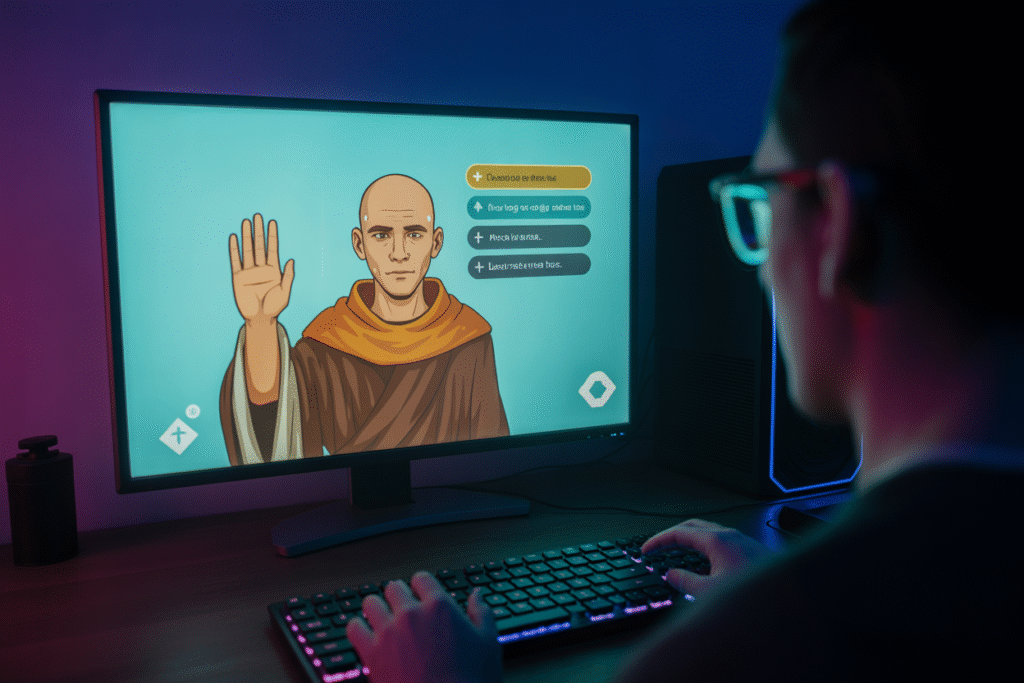China’s latest gaming controversy proves AI ethics isn’t just for boardrooms—it’s now boss-level content.
Imagine booting up a new RPG and discovering the final boss can’t die—because Chinese players demanded it. That’s exactly what happened last hour when *Wuchang: Fallen Feathers* patched its AI to make NPCs immortal. Suddenly, a single game mechanic ignited a global debate on AI ethics, morality, and who gets to decide right from wrong in virtual worlds.
The Patch Heard Around the World
At 11:24 GMT, Chinese gamers flooded social media with screenshots of slaughtered NPCs. By 11:54 GMT, the devs had pushed a hotfix turning every character invulnerable. The speed was stunning—and so was the backlash. Western players called it censorship; Eastern players called it cultural respect. Both sides were talking about the same thing: AI ethics in real time. The incident proves AI isn’t just code; it’s culture, politics, and religion rolled into one boss fight.
Why Morality Can’t Be Hardcoded
Traditional games script morality like a Sunday school lesson: steal, lose points; help, gain karma. AI flips that script. Platforms like AI Worlds let NPCs remember if you spared them or slit their throat. They adapt, evolve, and even preach mini-sermons about your choices. Sounds immersive, right? But here’s the twist: whose ethics get baked into the algorithm? A Confucian value system? A Western libertarian one? When AI ethics becomes the dungeon master, every player becomes a moral philosopher—whether they signed up for the class or not.
The Pros and Cons of Digital Conscience
Proponents argue AI-driven morality teaches empathy better than any textbook. Picture a player who spares a virtual child and later chooses non-violence in real life. That’s powerful. Critics, however, see a velvet-gloved tyranny. If an algorithm decides what you can’t do, is it still a game—or a sermon disguised as entertainment? The debate splits along three lines:
1. Player freedom vs. cultural sensitivity
2. Creative chaos vs. curated order
3. Ethical training vs. algorithmic overreach
Each bullet point is a boss fight in itself, and the loot is the future of interactive storytelling.
From Pixels to Pews: The Religious Angle
Some gamers joke that AI is becoming the new religion—complete with commandments, confessionals, and even digital damnation. When an NPC forgives you, it feels eerily like absolution. When it condemns you, it stings like excommunication. The parallel isn’t lost on theologians who study AI ethics. They ask: if an AI can preach, can it also convert? And if players start treating NPCs like moral authorities, do we risk replacing human priests with pixelated prophets? The question isn’t hypothetical anymore; it’s trending on X.
Your Move, Player One
So, what happens next? Developers are scrambling to add toggles: ‘AI morality on/off.’ Regulators are eyeing guidelines. Players are split between wanting guardrails and craving chaos. The smartest studios are turning the controversy into content—think in-game debates where NPCs themselves argue over AI ethics. Meta? Absolutely. Effective? Engagement numbers say yes. The takeaway is simple: AI ethics isn’t a side quest anymore; it’s the main storyline. Ready to pick your alignment?


